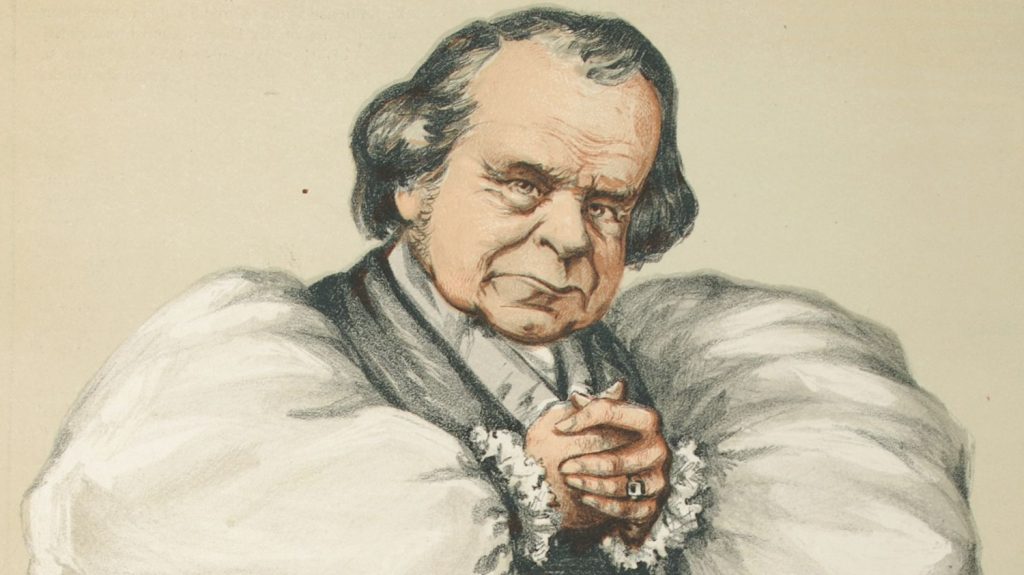At Oxford today in 1860, a debate about Charles Darwin’s new theory of evolution was held between the anthropologist Thomas Huxley and Bishop Sam Wilberforce (above). Darwin’s On the Origin of Species had been published a few months earlier. In a key exchange, Wilberforce jokingly asked Huxley if he was descended from an ape on his grandmother’s or grandfather’s side. Huxley’s response is disputed, as no one was taking verbatim notes, but in one version he responded: ‘I would rather be the offspring of two apes than be a man and afraid to face the truth.’ The debate was barely reported at the time, but it has gained a powerful mythology over time as a titanic clash between religion and science.
It is the feast of Theobald of Provins, the 11th century patron saint of medieval charcoal-burners. Why not celebrate by throwing another shrimp on the barbie?
On this day in 1559, King Henry II of France, persecutor of Protestants, celebrated the wedding of his daughter to the King of Spain with a royal joust in Paris. Despite a warning from his queen, Catherine, who the night before was troubled by a dream, Henry mounted his horse and charged at his opponent, whose lance smashed into the king’s armour and shattered. Several deadly splinters flew up into his visor and drove deep into his forehead above his right eye. One of the splinters penetrated his brain, and 10 days later Henry died of sepsis. His death led to decades of bloody civil war between the Protestant and Catholic factions in France.
The Spanish capital of Madrid came to a standstill today in 1680 as the Inquisition staged a gigantic and terrifying auto-da-fé, with the ritual humiliation, punishment and execution of some 100 heretics and apostates. While masses were recited and psalms sung, the condemned were paraded, wearing tall pasteboard hats on which their crimes were written, and linen robes painted with devils and flames. At midnight, the painted flames were exchanged for real bonfires, as Jews, Muslims and unrepentant heretics were released from cages to be burned alive.
Pope Paul VI published a creed today in 1968, which he hoped would explain the Catholic faith to the modern world. These good intentions were slightly undermined by the creed being published in Latin, with the inviting title, Solemni hac liturgia (‘With this solemn liturgy’), and by being 10 times longer than the Nicene Creed, on which it was based. It became known in English as ‘the Creed of the People of God’.
Image: The City College of New York
